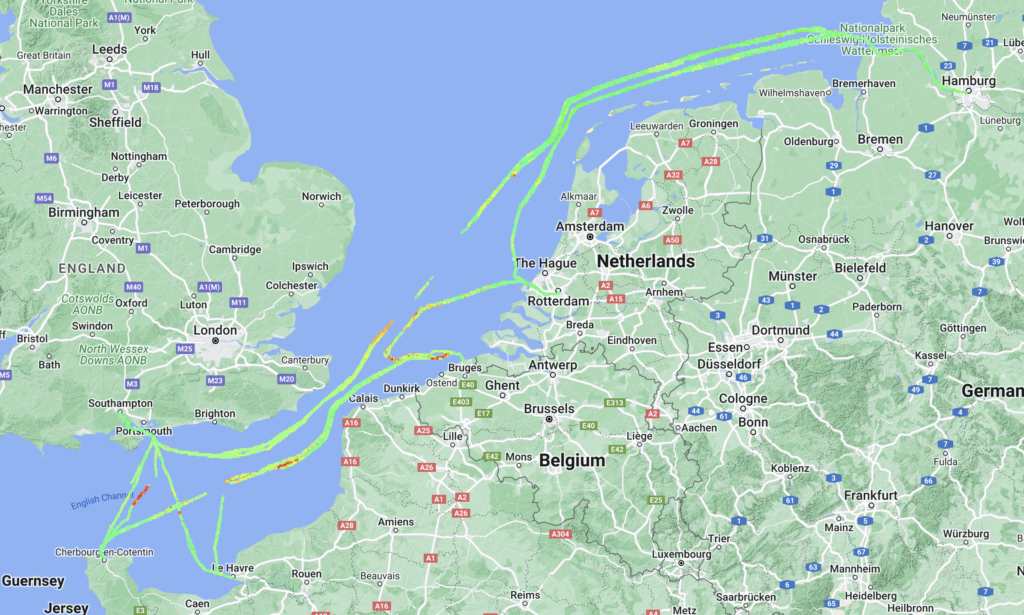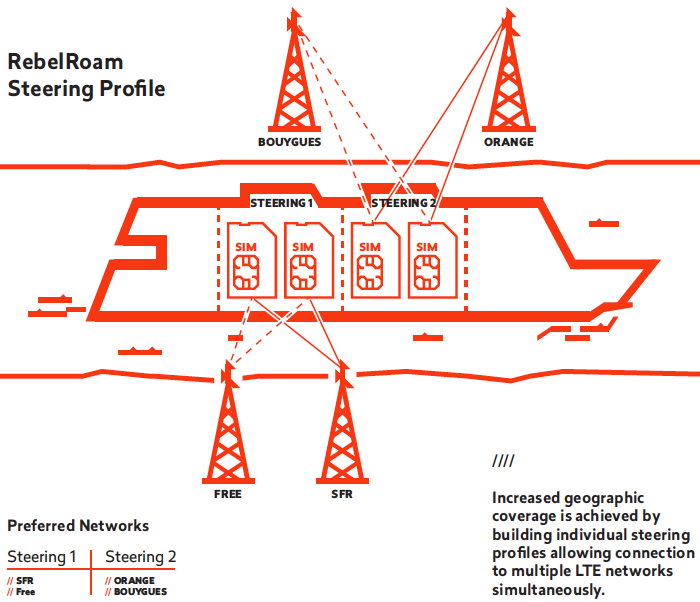Cruise ship operators are increasingly turning to cellular broadband near shore to satisfy the ever-increasing demand for high-quality connectivity at the least cost. Over the past few years, cellular connectivity prices in Europe have declined while cellular coverage and speeds have improved. Besides high latency, VSAT has limitations such as dead spots and redundancy issues, which negatively impact the passenger and crew experience.
Connectivity has become an increasingly important part of the cruise experience. More and more cruise lines target younger generations whose onboard Internet expectations are high. VSAT has been the primary connectivity source for cruise lines. But VSAT has many challenges and limitations. An entire cruise ship carrying 8,000 passengers and crew has the same amount of bandwidth as the typical house today. No matter how much VSAT bandwidth one is able to contract, there always seems to be a need for more.
Lack of bandwidth means that certain content (such as social videos) is blocked or pixilates while playing. Finally, latency over geostationary satellites is always very high compared to any other mode of connectivity and geographical obstacles, bridges, buildings, as well as technology failures cause VSAT outages.
To overcome VSAT challenges, cruise ship operators have started to invest in cellular Internet broadband. Cellular is a mature technology that is available almost everywhere near land and already used by cruise lines as a backup solution. But cellular can be used to improve the onboard Wi-Fi quality for passengers, not only as a backup solution for VSAT.
RebelRoam has analyzed cellular internet availability in both the Mediterranean and English Channel. We found that Internet connectivity through cellular networks was available 80-93% of the time – significantly more than expected. Cruise routes do not always hug the shore, but ships spend more time near the shore than one would expect. Our study shows that cruise lines can use cellular for more than just a backup. Cellular is a viable option to augment VSAT bandwidth to vessels.
Combining low-latency cellular connectivity with existing VSAT significantly increases the available bandwidth, reduces page load times, and most importantly improves the passenger and crew experience.
In the future, cellular will continue to play an important role in cruise ship connectivity even after low earth orbit (LEO) satellites come online. Currently LEO satellites only have partial coverage. They are not, for example, available in much of the Northern hemisphere and most LEO satellites are not licensed to support moving platforms like ships. In addition to that, network congestions is very likely in harbours when multiple cruise ships are using the bandwidth at the same time. Currently the best connectivity occurs when VSAT is deployed in tandem with cellular. The combination makes onboard Wi-Fi faster for passengers and crew, and more economical for operators.
RebelRoam has developed a cellular broadband solution with integrated antenna modems, bandwidth bonding, and remote SIM management specifically for the cruise ship market. RebelRoam technology steers bandwidth heavy applications (social media, video/audio streaming) to VSAT and latency sensitive web browsing to cellular broadband. This two-pronged approach maximizes the user experience at minimal cost.

RebelRoam delivers bandwidth from multiple mobile operators simultaneously, resulting in maximum bandwidth and superior geographic coverage. Having forged relationships with telcos globally, RebelRoam can offer a seamless service across different cellular networks. That means passengers consistently experience the fastest possible service regardless of where their journey takes them.
To gain the maximum result, bandwidth heavy traffic needs to be optimised. RebelRoam’s Streaming CDN solution reduces by 40% the overall guest Wi-Fi network bandwidth requirement. As a result, passengers steaming their favorite YouTube video or TikTok content will no longer experience buffering, nor will they congest the Wi-Fi network negatively impacting other guests.
About RebelRoam
RebelRoam provides superior onboard/inflight Wi-Fi traffic optimization and cellular broadband solutions to over three million connected passengers every month. Thirty transportation companies operating 3,000 cruise ships, riverboats, ferries, motor coaches and trains across forty countries realize the benefits that our service brings to their operations and to their passengers.
Learn more about RebelRoam at www.rebelroam.com
Press contact: Marju Teras, [email protected]
